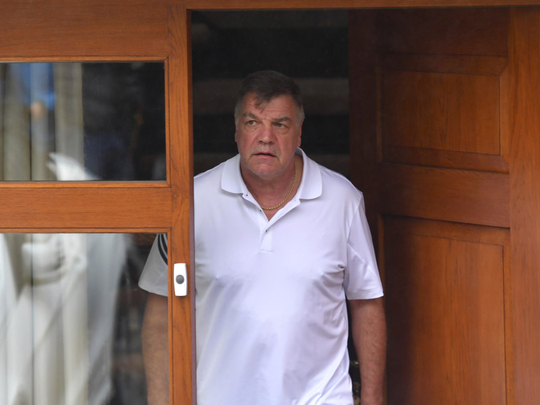
Where there’s brass there’s muck, and where there’s muck there is usually a rake. The Daily Telegraph’s exposure of England’s football boss, Sam Allardyce, was just about fair within journalism’s code of conduct. There was prima facie suspicion of wrongdoing and no other way of securing evidence.
Veteran former Football Association chairman David Bernstein when asked about corruption in football this morning kept saying that “nothing is proven”. But that is the trouble with international sport. Nothing is ever proven if left to self-regulation. Look at the Olympics, Fifa, cycling, cricket, athletics. All have been in varying degrees rotten. It has taken journalists — mostly British ones — to subject them to at least rudimentary accountability. I have some sympathy for Allardyce.
Reading and listening between the lines of the Telegraph material, it is clear that he moves with ease through the murkier reaches of big-time football. But the chit-chat among covert reporters who had carefully cultivated his confidence is not the same as criminal, fraudulent or, in the context, inappropriate behaviour. Discussing the various ways round the transfer rules must be routine among agents and managers. Bad-mouthing colleagues in private is hardly a hanging crime.
The sting was justified, but whether the offences were sacking offences must be doubtful. The truth of the matter is that these sports reek of money, and money unregulated or uncontrolled soon reeks of corruption. In the absence of self-discipline, and shielded by dubious members of the accountancy profession, these organisations have only one thing to fear and that is embarrassment.
Allardyce this week committed the one capital crime: He embarrassed the English Football Association (FA). The affair recalls the fate of David Triesman, Bernstein’s predecessor as chairman of the FA prior to 2010. Triesman was taped commenting on the corruption of various Fifa members prior to the ill-fated venture of Gordon Brown and then David Cameron to try to “win” the 2018 World Cup for England. His furious FA colleagues forced him to resign, on which the then sports minister, Hugh Robertson, congratulated them.
Like dead men walking
I will never forget the faces on England’s “three lions”, Cameron, David Beckham and Prince William, later that year in Zurich. They had been derisively locked out of hosting the 2018 World Cup, and looked like dead men walking. The BBC and the Sunday Times had told them the voting was corrupt. They were gullible to the point of negligence. They had even tried to censor the BBC for revealing their forthcoming humiliation.
Many of Triesman’s allegations were subsequently shown to be true. Many of those who voted against England have now resigned or face prosecution. Did the FA apologise or invite Triesman back? No. Did the FA refuse all further dealings with Sepp Blatter’s blatantly corrupt Fifa?
Cricket’s dropped catches and no-balls turned out to be paid for. British cyclists who suddenly won gold medals had superior equipment to other competitors. How did Qatar get to hold a summer World Cup, or Russia a winter Olympic games? You can guess.
Supranational governance suffers the blight of unaccountability. No one is responsible to anyone. A tide of money rises to cover every sin. Unaccountability afflicts the United Nations and its agencies. It afflicts the European Union. It afflicts organised religion and international charity. But sport is especially afflicted because it is flush in television revenue and glory sanitised by the political prestige of global triumph.
The FA cannot have been unaware of the stink of corruption emanating from Fifa. As long as the financial and political rewards to international sport are so inflated, it is doubtful whether its rulers will ever truly come clean. The IOC has yet to purge doping in its sports and probably never will. The concept of what is a drug and what is performance enhancement is forever changing.
The remedy for an honest sport, or an honest country, is to decline to collaborate with these international junkets. The moral is never to trust a governor you cannot remove with a vote. Everyone in “football street” appeared to know what Allardyce was talking about. They just did not like it being known by others. As long as these people indulge the greed of international sport, the only discipline they will acknowledge is embarrassment. That is why the only person they really fear is the investigative journalist.
— Guardian News & Media Ltd
Simon Jenkins is a journalist and author. His recent books include England’s Hundred Best Views, and Mission Accomplished? The Crisis of International Intervention.












